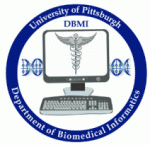Conference on Semantics in Healthcare and Life Sciences
About CSHALS 2013
Linked Data and Semantic Web technologies have now burst out of the research
labs and are becoming effective, cost-saving technologies that are an integral
part of the academic and industrial Big Data infrastructure.
CSHALS 2013 offers a singular opportunity for academic and industry partners
involved in developing and implementing semantically-interoperable technologies
to share their insights and experience and learn about the state-of-the-art
pertaining to Healthcare and Life Sciences.
Topics covered by CSHALS 2013 span the continuum between standards development
and big data workflows - from Life Science data representation to its analysis.
We are inviting submissions for poster and oral presentations in the following
topic areas:
- Linked Data - generation, representation, and management of data using the W3C’s Resource Description Framework (RDF) and Linked Data principles.
- Data Modeling - Ontologies, Taxonomies - practical application of knowledge engineering principles and techniques to data modeling.
- Text Analysis, NLP, Question Answering - use of semantic technologies for processing natural language.
- Cloud, Parallel, and Distributed Computing - use of semantic technologies for representation and management of distributed computational resources and workflows.
- Healthcare eScience - Translational Medicine, Pharmacogenomics, personal health records (PHR) - patient-centric use of semantic web technologies to handle the integration of clinical and biomolecular data.
- Business Intelligence, Machine Learning, and Analytics - semantic applications for data analysis, inference, and decision-making.
- Human Computer Interfaces - development of interfaces or design criteria that involve humans in the process of knowledge creation.
- Clinical Applications - Use of semantic web technology or architectures, including the orchestration of webApp ecosystems, as part of medical care delivery.
- Molecular Applications - Deployments of semantic web technology in biomolecular and biochemical domains.
- Applications to Emerging Health Disciplines - Use of
the semantic web’s integrative and distributed nature to support emergence
of novel applications in health care.
[TOP]
Conference on Semantics in Healthcare and Life Sciences
Keynote Speaker - Dr. Olivier Bodenreider
 |
OLIVIER BODENREIDER, M.D., Ph.D. Chief, Cognitive Science Branch National Library of Medicine National Institutes of Health Bethesda, MD, United States Presentation Title: From Biomedical Information Integration to Knowledge Discovery Through the Semantic Web Abstract: Over the past decade, knowledge resources have become increasingly available not only for humans to read and make sense of, but also electronically, which make these data amenable to automated processing. Structured knowledge sources have been developed and integrated in systems such as Entrez, developed by the National Center for Biotechnology Information (NCBI). Vast amounts of biomedical text have also been processed in order to extract entities and relations. In the clinical domain, data warehouses created from electronic health record systems have been created in virtually every institution involved in translational research. Finally, the biomedical domain is rich of many ontologies, which provide the vocabulary for normalizing entities and relationships in these knowledge sources, as well as the domain knowledge to interpret the content of these resources. Semantic Web technologies have emerged as the infrastructure of choice for integrating biomedical information. This talk will focus on the experimental Biomedical Knowledge Repository being developed at the National Library of Medicine. This repository leverages Semantic Web technologies to integrate the Unified Medical Language System (UMLS), 60 M relations extracted from PubMed/MEDLINE abstracts by the SemRep natural language processing (NLP) system, as well as features from Entrez Gene. We will show how definitional knowledge from biomedical ontologies can complement assertional knowledge extracted from the literature in support of hypothesis generation and knowledge discovery. Biography: Olivier Bodenreider is a Senior Scientist and Chief of the Cognitive Science Branch of the Lister Hill National Center for Biomedical Communications at the US National Library of Medicine. His research focuses on terminology and ontology in the biomedical domain, both from a theoretical perspective (quality assurance, interoperability) and in their application to natural language processing, knowledge discovery and information integration Dr. Bodenreider is a Fellow of the American College of Medical Informatics. He received a MD degree from the University of Strasbourg, France in 1990 and a PhD in Medical Informatics from the University of Nancy, France in 1993. Before joining the National Library of Medicine in 1996, he was assistant professor for Biostatistics and Medical Informatics at the University of Nancy Medical School. . . . . . . . . . . . . . . . . . . . . . . . . . . . . . . . . . . . . . . . . . . . . |
Conference on Semantics in Healthcare and Life Sciences
ISCB Job Board
Updated Oct 10, 2012ISCB offers a Member Job Board available to all to browse including Semantic Job opportunities. To see what is new visit: www.iscb.org/iscb-careers-cshals.
Stay up to date by subscribing to the RSS Feed here.![]() RSS Subscribe here to our jobs RSS feed
RSS Subscribe here to our jobs RSS feed
Job Posting Information
All current year ISCB members have job posting privileges, and can go straight to www.iscb.org/jobs to begin the posting process.
If you would like to post a job with ISCB but are not a current member you have three options:
1) Become a new member of ISCB, or renew an expired membership, for between $20 to $119 (depending on your geographic location), and have access to job postings for 12 months from the date of membership as often as needed, with no limit on the number of postings. (If you choose this option, please join us using the "Membership" section and then, after successful registration, re-login on the membership page to select Manage Job Postings from the User Menu on the left of the page).
2) Gain permission from anyone within your organization who might be a current member to access the ISCB job site with membership login and password, and then for the instructions in #1 above to begin the posting process.
3) As a non-member you may pay to post a job. Mail all the information of the job posting (see details below) and a check for $150 US Dollars made payable to ISCB to:
Suzi Smith, Administrative Support
International Society for Computational Biology - ISCB
9500 Gilman Drive, MC 0505
La Jolla, CA 92093-0505
USA
If you would like to email the information and pay by credit card please contact Suzi at This email address is being protected from spambots. You need JavaScript enabled to view it. to request a credit card authorization form.
Required Job Posting information:
• Position Type (Faculty, Post Doc Research Fellowships, Industrial & Commercial or other)
• Position Title
• Organization
• Dept
• Location (city, state/province/region, country)
• Duration (full time, part time, contract or temporary)
• Start Date
• Job Description
• Job Qualifications
• Reference or job # (if applicable)
• Contact Person
• Email Address
• Telephone #
• Fax #
• Method of Applying (i.e. fax resume)
Each job will be posted for 90 days and each posting from a non-member will require a $150 payment; every 4th posting for the same organization in a 12 month period is free.
[TOP]
Conference on Semantics in Healthcare and Life Sciences
Keynote Speaker - Dr. Stefan Decker
 |
STEFAN DECKER, PhD National University of Ireland, Galway Digital Enterprise Research Institute (DERI) Ireland Presentation Title: From Linked Data to Networked Knowledge or Science is a Social Construct Biography: Prof Stefan Decker is a full professor at the National University of Ireland and the director of the Digital Enterprise Research Institute (DERI) in Galway. Prof Decker obtained in 1995 a masters in Computer Science at the University of Kaiserslautern (awarded with distinction). From 1995 to 1999 he worked towards a Ph.D. degree in Computer Science at the University of Karlsruhe (awarded 2002 with distinction). From 1999-2002 he worked as a Postdoc and Research Associate at the Computer Science Department of Stanford University and established one of the first Semantic Web research groups. From July 2002 to July 2005, he worked as a Computer Scientist and Research Assistant Professor at the Information Sciences Institute of the University of Southern California, USA. In October 2003 Prof Decker moved to Ireland to help to set up a new Research Institute concerned with the Semantic Web. Since July 2006 Prof Decker is full professor and director of the Digital Enterprise Research Institute. His current research interests include the Semantic Web, metadata, ontologies and semi-structured data, web services, and applications for Digital Libraries, Knowledge Management, Information Integration and Peer-to-Peer technology. He published around 80 papers as books and journal, book, conference, and workshop contributions. He co-organized around 35 scientific workshops and conferences and has edited several special issues of scientific journals. He was editor-in-chief of Elsevier's Journal of Web Semantics, editoral committee member of the Electronic Transactions on Artificial Intelligence (ETAI) (the Semantic Web), the Journal on Internet Research and the Journal on Web Intelligence and Agent Systems (WIAS) and is recognized as one of the most widely cited Semantic Web scientists. His dissertation work was quoted as one of the inspirations for the DARPA DAML program, which span the Semantic Web effort. . . . . . . . . . . . . . . . . . . . . . . . . . . . . . . . . . . . . . . . . . . . . |
Conference on Semantics in Healthcare and Life Sciences (CSHALS)
Keynote Speaker - Dr. Edward H. Shortliffe
 |
EDWARD H. SHORTLIFFE, MD, PhD, MACP, FACMI
|






